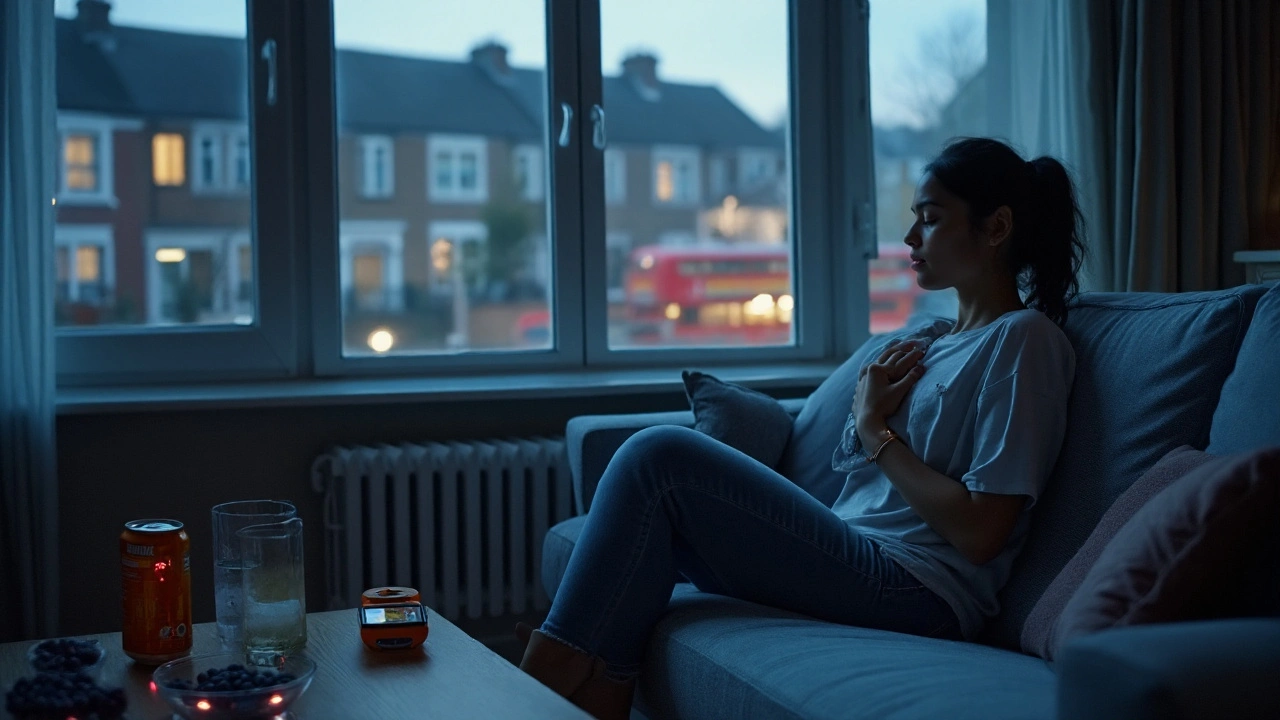Energy Drink Heart Palpitations – Quick Facts and Tips
If you’ve ever felt your heart race after a can of Red Bull or a sporty brew, you’re not alone. Those fluttery beats are called palpitations, and they often pop up after you consume a lot of caffeine, sugar, or other stimulants common in energy drinks. In this guide we’ll break down what’s happening inside your chest, why it matters, and how to enjoy a boost without scary side effects.
Why energy drinks can trigger palpitations
Most energy drinks pack anywhere from 80 to 300 milligrams of caffeine per serving. Caffeine is a stimulant that tells your nervous system to fire up, making your heart beat faster. Add high sugar or taurine, and the effect can feel even stronger. Those ingredients also raise adrenaline levels, which is why you might feel jittery, shaky, or notice that your pulse skips a beat.
Another piece of the puzzle is the fast absorption rate. Unlike coffee, which releases caffeine slowly, a can of energy drink delivers a quick surge straight to your bloodstream. That rapid hit can overwhelm a heart that’s already under stress, especially if you’re dehydrated, have low iron, or take medication that interacts with caffeine.
People with underlying heart conditions, anxiety, or who are sensitive to caffeine are most likely to notice palpitations. Even if you’re healthy, drinking several cans in a short time can push your heart into an overdrive mode, leading to that unsettling flutter.
How to keep your heart steady
First, know your limits. Most health agencies suggest no more than 400 mg of caffeine a day for adults – that’s roughly four cups of coffee or two big energy drinks. If you notice a fast heartbeat after just one can, cut back or try a low‑caffeine version.
Stay hydrated. Caffeine is a mild diuretic, so drinking water alongside your energy drink helps dilute the stimulant and keeps blood pressure stable. A good rule of thumb: for every 8‑oz energy drink, sip at least 12‑oz of water.
Watch the sugar. High‑sugar drinks can spike blood glucose, which in turn can cause your heart to work harder. Look for “zero‑sugar” or “low‑sugar” options, but remember they still contain caffeine.
If you feel a flutter that lasts more than a few minutes, gets worse, or comes with shortness of breath, chest pain, or dizziness, treat it like an emergency. Call your doctor or head to urgent care – palpitations can sometimes signal an arrhythmia that needs professional attention.
For everyday energy, consider alternatives: green tea, matcha, or even a quick walk. These give a milder boost without the extreme spikes. If you still want an energy drink, choose brands that list caffeine content clearly and keep the serving size modest.
Finally, track how your body reacts. Keep a simple log of what you drink, how many ounces, and any heart symptoms you notice. Over time you’ll see patterns and can adjust your habits before palpitations become a regular nuisance.
Bottom line: energy drinks can be fun, but they’re not a free pass for heart‑racing side effects. Knowing the caffeine dose, staying hydrated, and listening to your body will let you enjoy a lift without the worry. Stay safe, and keep that heartbeat steady.
Had an energy drink and your heart is racing? Here’s how to calm it fast, what’s safe, when to get help, and how to avoid it next time-clear, evidence-backed steps.

